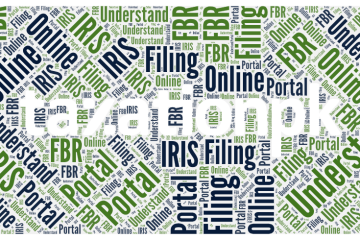Introduction
Tax evasion is the intentional non-payment or underpayment of taxes owed to the government. It is a serious crime that can result in significant penalties, including fines, imprisonment, and asset forfeiture. In Pakistan, the penalties for tax evasion are severe, and they have been increasing in recent years in an effort to crack down on this crime.
What is tax evasion?
Tax evasion is the intentional non-payment or underpayment of taxes owed to the government. It can be committed by individuals, businesses, or other organizations. There are many different ways to commit tax evasion, including:
- Failing to file tax returns
- Filing false tax returns
- Underreporting income
- Overstating deductions
- Claiming fraudulent credits or deductions
What are the penalties for tax evasion in Pakistan?
The penalties for tax evasion in Pakistan are severe. They can include:
- Fines
- Imprisonment
- Asset forfeiture
The amount of the fine or the length of the prison sentence will depend on the severity of the offense. For example, someone who fails to file a tax return may be fined up to Rs. 50,000, while someone who commits fraud may be sentenced to up to 10 years in prison.
How can I avoid getting penalized for tax evasion in Pakistan?
There are a number of things you can do to avoid getting penalized for tax evasion in Pakistan. These include:
- Filing your tax returns on time
- Filing your tax returns accurately
- Keeping good records
- Consulting with a tax professional
By following these tips, you can help to ensure that you are in compliance with the tax laws in Pakistan and that you avoid getting penalized for tax evasion.
The impact of tax evasion on Pakistan
Tax evasion has a significant impact on Pakistan. It deprives the government of revenue that could be used to fund important services, such as education, healthcare, and infrastructure. It also creates an uneven playing field for businesses, as those who evade taxes have an unfair advantage over those who do not.
In addition, tax evasion can lead to social unrest. When people see that others are not paying their fair share of taxes, they may be less likely to pay their own taxes. This can lead to a breakdown in trust in the government and a decline in social cohesion.
What can be done to reduce tax evasion in Pakistan?
There are a number of things that can be done to reduce tax evasion in Pakistan. These include:
- Strengthening the tax laws
- Improving the tax administration
- Raising public awareness of the importance of paying taxes
- Providing incentives for taxpayers to comply with the law
By taking these steps, Pakistan can reduce the level of tax evasion and generate more revenue for the government. This will help to improve the lives of all Pakistanis.
Conclusion
Tax evasion is a serious crime that has a significant impact on Pakistan. By following the tips in this article, you can help to ensure that you are in compliance with the tax laws in Pakistan and that you avoid getting penalized for tax evasion.
Additional information
In addition to the penalties listed above, tax evaders in Pakistan may also face other consequences, such as:
- Damage to their reputation
- Difficulty getting a loan or mortgage
- Difficulty getting a job
- Difficulty getting a visa
- Difficulty traveling
If you are considering tax evasion, it is important to weigh the potential consequences carefully. The penalties for tax evasion are severe, and the consequences can be far-reaching. It is always best to comply with the law and pay your taxes.
If you have any questions about tax evasion in Pakistan, you should consult with a tax professional.






